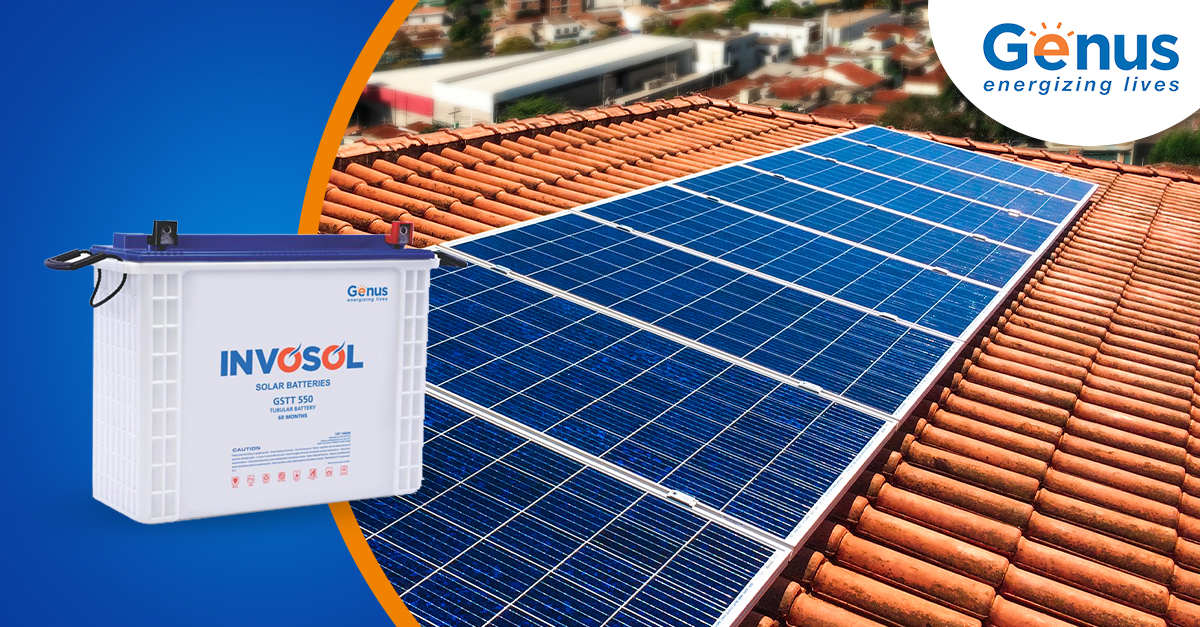Solar Battery Buying Guide —Top Factors To Consider
As per a report by the Solar Energy Industries Association, the demand for solar batteries has significantly increased over the past few decades among both homeowners and businesses. This surge is largely due to the unstable power supply in many regions and the environmental impact of traditional electricity generation methods.
If you're looking to maximize the efficiency of your solar energy system, choosing the right battery is essential. That’s why we’ve created this detailed solar battery buying guide—designed to help you make an informed decision and get the most value for your investment.

**What is a Solar Battery?**
A solar battery is a storage device that captures and holds energy generated by your solar panels. This stored energy can then be used during the night, during power outages, or when electricity demand is high. It helps ensure a continuous power supply and reduces reliance on the grid.
**What to Look for in a Solar Battery?**
- **Battery Capacity and Power**
The capacity of a solar battery refers to the total amount of electricity it can store, usually measured in kilowatt-hours (kWh) or ampere-hours (Ah). Look for batteries that are stackable, allowing you to expand your storage capacity as needed.
Power rating, measured in kilowatts (kW), indicates how much energy the battery can deliver at once. A high-power battery can run your entire home for a short time, while a high-capacity battery can power a few appliances for longer periods.
- **Depth of Discharge (DoD)**
This refers to how much of the battery's capacity you can actually use before needing to recharge. For example, if a 10 kWh battery has a DoD of 90%, you can use 9 kWh before recharging. Higher DoD means more usable energy and better performance.
- **Round Trip Efficiency**
This measures how efficiently the battery converts stored energy into usable electricity. If you store 5 kWh and get back 4 kWh, the round trip efficiency is 80%. High efficiency translates to cost savings over time.
- **Battery Life and Warranty**
A good warranty is a strong indicator of a reliable product. Most warranties are based on the number of charge cycles or years of use. Longer lifespan and slower capacity degradation are key factors to consider.
- **Battery Type**
There are several types of solar batteries available, each with its own advantages and disadvantages:
1. **Flow Batteries**
These use liquid electrolytes to store energy and are known for their long life and recyclability. However, they are relatively new technology and can be expensive.
2. **Lead-Acid Batteries**
A traditional and affordable option, but they tend to be heavy and have slower charge cycles, making them less ideal for some applications.
3. **Lithium-Ion Batteries**
Popular for their durability, efficiency, and long lifespan. They are less prone to damage and work well in various temperatures, though recycling can be challenging.
4. **Tubular Batteries**
A type of lead-acid battery commonly used in areas with frequent power cuts, especially in India. They offer fast charging and discharging rates and are often rated in C10.
**Conclusion**
Investing in a solar battery is a smart move that can provide long-term benefits. By considering the factors outlined above, you can choose a battery that fits your needs and budget. If you’re looking for a reliable and high-performance option, brands like Genus offer excellent solutions that combine efficiency, durability, and affordability.
Abs Pipe Extrusion Equipment,Pe Pipe Extrusion Equipment,Abs Co Extrusion Pipe Extrusion,Abs Anti Static Pipe Production Line
Zhejiang Jinhai Plastic Machinery Co., Ltd. , https://www.jinhaiextruder.com